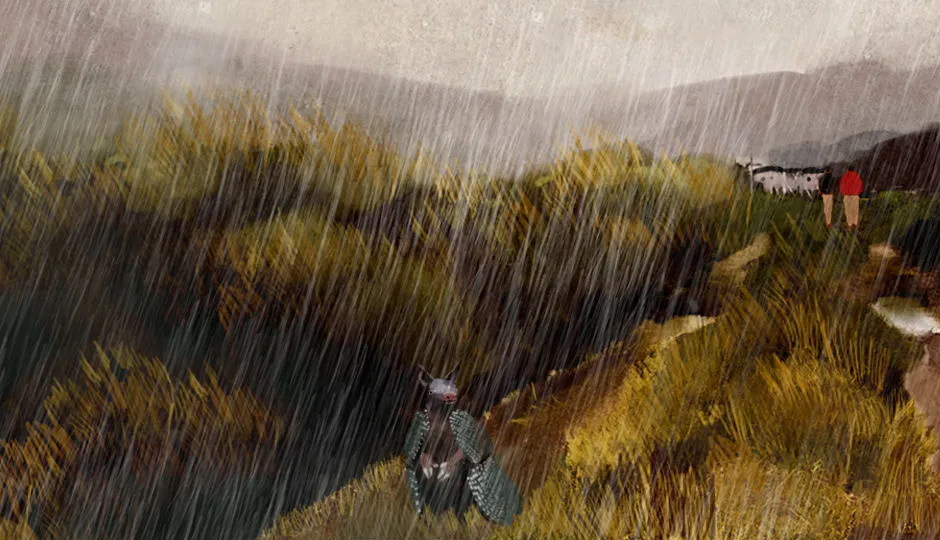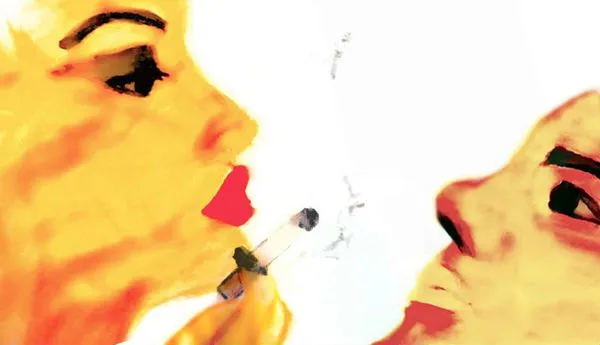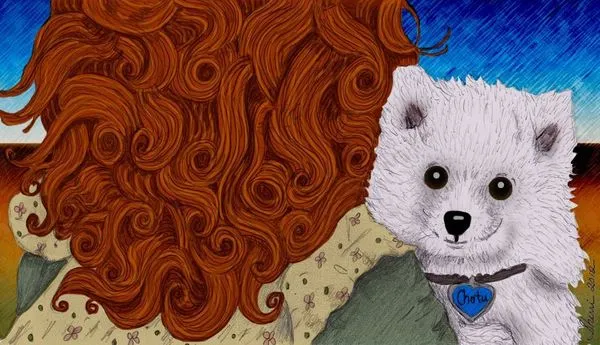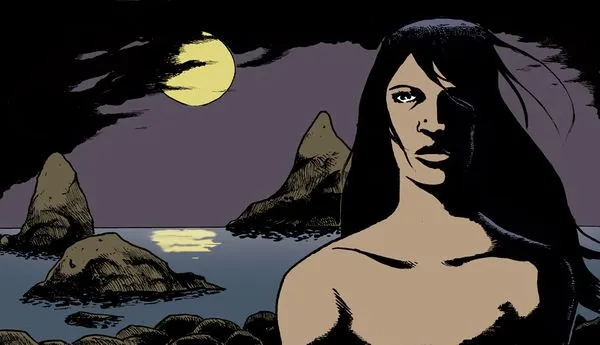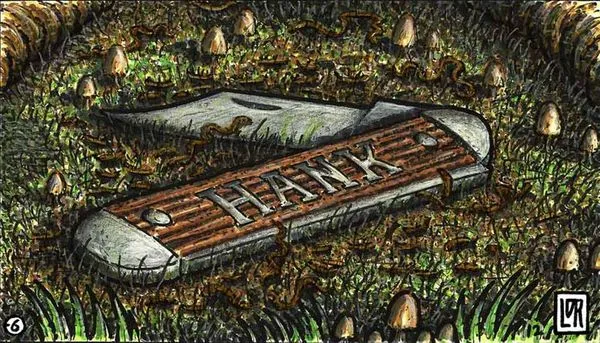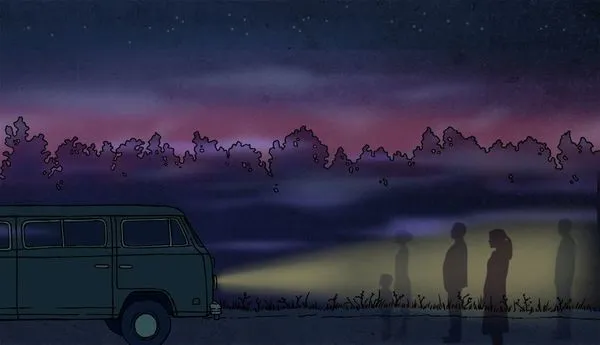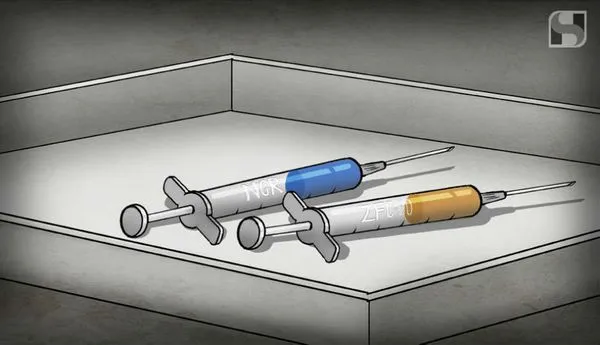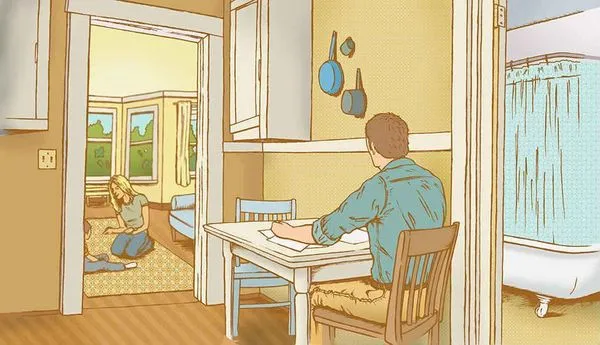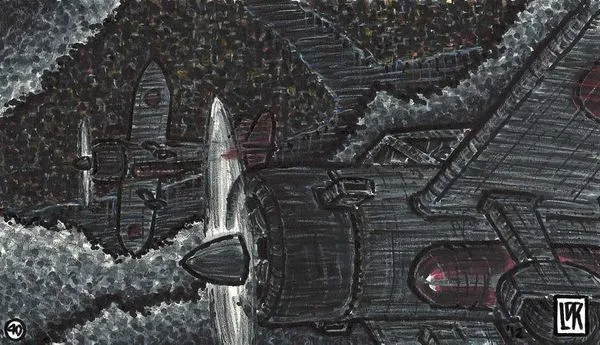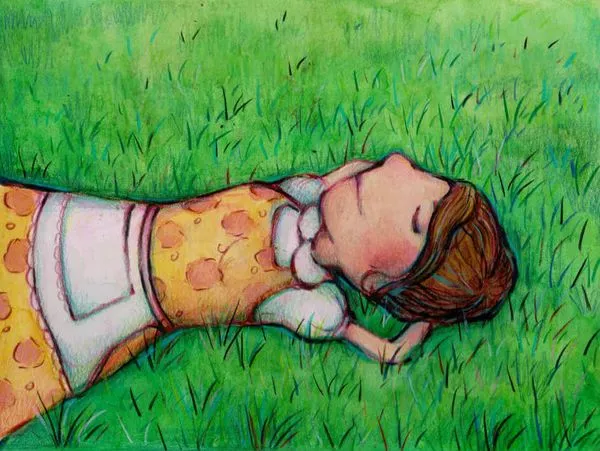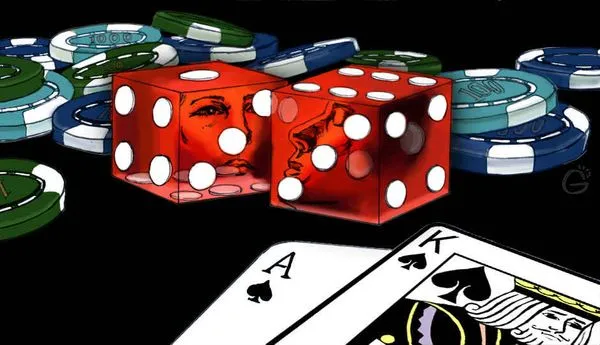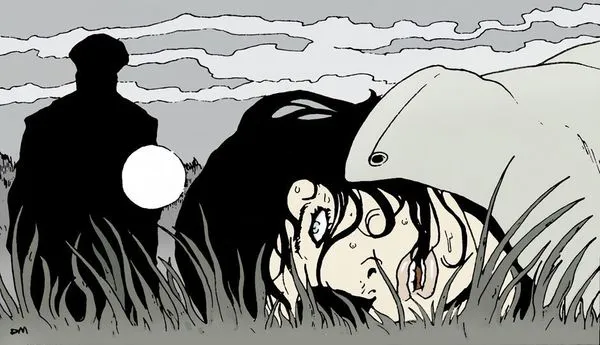Chasing Armadillos
Erich Earl Forschler | Pam Casey
Published on 2016-03-06
The truck’s tailpipe shook with steamy exhaust as the truck idled there between the several multi-storied and peach-colored stucco maintenance buildings. Twisted, drooping live oaks, charcoal against the fading indigo sky and dripping with Spanish moss, lined the white sand-mixed-with-oyster shell road leading in. A middle-aged man sat behind the steering wheel and smoked a cigarette, waiting, flicking ashes out the open driver’s side window every few puffs. Then another man emerged from a nearby building, a bolt-action .22 rifle in one hand, a half-peeled banana in the other. He walked up alongside the truck, hooked an elbow over the bed and then pulled the rest of him up over the edge using the rear tire as a step. Once inside the bed, he stood behind the cab, legs spread, leaning forward to rest his waist against the back window with one hand to hold the banana and the other pressing the rifle’s buttstock into his hip. He gave a shout and then the truck started off, carving a circle through the sand before following the road out until it sank into shadows of live oaks and palmettos, leaving only a veil of dust and murmur of distant truck engine in its wake.
To the east, the sun began its morning climb out of the Atlantic, the infant arc of orange shimmering across the surface in a line of broken reflections. The murky brown water walked up the desolate beach and folded over itself in a steady, frothy rhythm. And a little further inland, past the rows of white dunes spotted with green weeds, the first rays of orange light found their marks, clipping the tops of the live oaks.
The truck hummed northward along the paved main artery of the sparsely populated island, then west until it came alongside the long plain of grass that served as the island’s airport, and there it turned north again, off the hardball, a plume of dust chasing it through a tunnel of tree limbs. The truck slowed then, the tires rolling gently, the man in the bed scanning the thick, untouched vegetation on either side as the road carried them up the western edge toward the old plantation ruins. There the land opened wide with long green fields and only a few trees, most of them concentrated between the old tabby barn and the two-story white house on the western edge. The truck rolled along the sand path toward the house, past the gray tabby walls rising in partial squares from the overgrown weeds and palmettos, their visages but crumbling suggestions of what was. As the truck pulled past the barn and alongside the house the man in the bed slammed his hand against the roof of the cab once and said something to the driver, pointing toward the back of the house when he spoke. The driver answered him, but when he did he pointed a little further out past the house, to the edge of an estuary-feeding river where a bright white fishing boat sat empty and anchored.
***
The ferry cut through the brown suede water, carving an endless, growing V as it went. The river parted the marshes on either side. Flat and green and rippling in the wind. A pair of egrets walked the edge, occasionally driving their beaks into the weeds. The sky above brightened, and the ferry made it around the marshes just as the sun broke over the island before it. The two men riding on the top level gave each other a look when the destination came into view.
Gates took his phone from his pocket and checked it. Then he turned to Andrews and said, “No signal.”
Andrews took his own phone from his pocket, looked at the screen, and then put it away again. “As long as they’ve got electricity, I can deal with the no signal part of it,” he said. On the lower deck, stacked in the designated area for luggage, were several large, black plastic cases. A smaller fabric laptop case rested across Andrews’ knees.
“They got electricity,” Gates said. He leaned over to one side and pulled a folded, laminated 1:25,000-scale MGRS map from his back pocket. He opened it one fold and studied it.
Andrews slid the laptop to the bench, stood and adjusted his glasses. “I’m gonna go check on the gear.”
“We’re the only ones on the boat,” Gates replied, still looking at the map. Andrews checked the gear anyway.
They sat out the rest of the ride in silence, both watching the land ahead of them grow, both wearing button-up short sleeve shirts and cargo pants and sunglasses. They would have been an exact match were it not for their different colored shirts.
The ferry docked at Marsh Landing, the rubber fender thumping deeply and then chirping sharply as the boat settled in against the dock. The two men gathered their gear, extending retractable handles from the black cases and then towing them along out the gangway and up the ramp. They walked down the wooden pier, tiny plastic wheels thumping in rhythm against the boards beneath them. A few locals fished from the elbows of the dock. Gates studied the faces, Andrews kept looking out and up in different angles ahead of them. Beyond the building was a paved parking lot. A man in a polo shirt and jeans stood there with a two-way radio in one hand, waiting. He used the other hand to wave when they came close.
“Hey, Paul,” Gates said as they met and shook hands. He nodded to Andrews and said, “Wayne Andrews.”
“Nice to meet you,” Paul said as he and Andrews shook hands, “though I’m not sure I like the circumstances.”
“You want us to go then?” Gates asked, smiling and pointing his thumb back toward the ferry.
Paul shook his head. “No, but I’m not exactly comfortable with the idea of a fugitive on the island, and especially that I can’t warn anybody about it.”
“I understand. You told me. We appreciate your cooperation here.”
“Well, the good news is that the Marine Institute doesn’t have any groups on the island this week, so a shaggy-headed white kid will stick out.”
Gates nodded. “Like I told you on the phone, he’s not looking to blend in. He’s trying to hide.”
“I hope you’re right.” Paul then pointed over his shoulder toward a white Jeep Cherokee in the parking lot. “Car’s over here.”
As Gates and Andrews loaded the black cases into the back of the SUV, a voice came over the radio in Paul’s hand:
“Paul, can you come up here to Chocolate? Got something you should see.”
Paul looked at Gates and then spoke into the radio. “What is it?”
“Back door’s been kicked in.”
“Okay,” Paul sent back. “I’m on the way.”
Gates slammed shut the back hatch and nodded at Andrews, who was silently mouthing the words “Oh shit.” The two men quickly climbed into the Jeep, Gates in the front seat and Andrews taking the seat behind him. Paul climbed behind the wheel.
“Who’s that on the radio?” Andrews asked.
“That’s uh, he’s—” Paul began to say before Gates interrupted him.
“Tell him not to go inside,” Gates said, tapping a finger on Paul’s shoulder.
“Just wait there.”
“Don’t go inside,” Paul said over the radio. “Just stay where you’re at.” He slammed his door and stabbed the steering column with the key a few times before he finally put it home and started the engine, his other hand trying to seat the portable radio and buckle the seatbelt at the same time. The Jeep’s stereo came on, the music blared. Paul dropped his radio to the floorboard as he tried to turn the stereo down.
Then the other voice came back over the radio: “Uh. We already went in. Nobody home.”
Gates reached over and put a hand on Paul’s arm. “Relax. We’re already too late.”
They drove north through the island, up along the western edge. Sporadic bands of golden sunlight fell down through the canopy and washed over the Jeep as it went. The men inside rode in silence, as if waiting for something else to come over the radio, until Gates noticed the framework of an unfinished home through the trees to their right. Bright, golden-brown boards and beams, barely visible in a clearing set back behind the palmettos and live oaks.
“That the state’s or a private deal over there?” he asked.
Paul glanced over and then set his eyes on the road. “Private. They’re buying up property from all the residents in Hog Hammock. Won’t be long before we’ve got a golf course and casino here, too.”
“Hmm.”
“I heard about the property taxes,” Andrews said.
Paul nodded. “Yep, they magically shot up. Then when some residents fought back and a few stories came out about it, the county commissioners blamed it on some accounting errors. If you ask me, it’s all about pressuring those folks to sell out.”
Andrews watched the unfinished home until it sank away in the greens and shadows and shards of sunlight. “Lots of hiding places here,” he said, facing the front again.
“Over 16,000 acres worth,” Paul said with a laugh.
“And only what, one game warden?”
“We’ve got two who work the island, but they mainly handle hunting and fishing. So it’s like there isn’t any law enforcement out here at all.”
Gates gave Andrews a look and then watched more palmettos marching by outside. Then he turned to Paul and asked, “Those DNR guys up there at the break-in?”
Paul shook his head. “No, but I did tell them about the situation.”
“Who, the guys at the break-in or DNR?”
“DNR.”
Gates nodded. “They got a boat?”
“Yes,” Paul replied.
“Good.”
Then Andrews leaned forward and asked, “So who’s up at the break-in then?”
***
The sun drifted higher above the horizon, lost amid the unblemished blue. Floating, burning, unattached. The water below rolled in brown waves, glinting hot white in stripes and patches where the sun struck it at proper angles. A line of white shrimp boats held the edge, their booms extended, dragging the nets that fell away beneath the rolling brown. Over them the sky took on a deeper hue than the blue enveloping the sun above.
Threatening to deepen still, almost violet, the horizon swelled, encroaching on the line of boats with their booms and nets, the top of it billowing out in smooth circular shapes and differing shades of gray. The clouds at once alighted, smatterings of distant flashes, sporadic, localized, silent. For now.
Fate brought itself across the water, sweeping westward until it breached the land and shook the weeds on the dunes with a cold wind. It rode over the sand and deeper in, across the line of live oaks shading the land, between them, around them, and deeper still, shaking past the palmettos until it found a small clearing where the sand held a blackened, smoldering log, its ends burnt to points which flashed with crackling, orange spots when the wind found its mark.
And from the embers rose a spark, unannounced, unattended, drifting aloft, like the sun above the canopy, searching for some place to rest.
***
Gates stepped out onto the back porch of the house, holding the screen door open for Andrews who followed behind him. His other hand holstered a pistol into his belt. Bright, gold star-shaped badges hung from chains around their necks. Once outside, the men dropped the badges back behind their button-up shirts. Paul stood at the bottom of the steps leading up to the porch.
“Anything?” He asked.
Gates frowned and shook his head. “Just a nice, big shoeprint on the door with an Adidas logo in the center of the sole.”
“He’s wearing Adidas’s?”
“Hell if I know. Whoever kicked in that door was. You wanna take a look? Make sure everything’s there?”
“Sure.” Paul climbed the stairs, passing Gates and Andrews in the opposite direction and then disappearing inside the house.
Two more men stood leaning over the bed of a pickup twenty feet away, watching. They straightened as Gates and Andrews approached.
“So y’all are US Marshals, huh?” One of the men asked. Gates nodded. “We’d of waited on goin inside had we known—”
Gates shook his head and waved a hand through the air. “No worries,” he said.
“Y’all out of Savannah then?”
“Yup,” Gates said, sidling up to the truck bed and mimicking the pose of his company. Andrews stopped a few feet short and scanned the sky, a frown stretching beneath his black sunglasses.
“We didn’t see nothin missin from inside.”
Gates nodded. “That’s good.”
“Hippies.”
“Come again?” Gates asked him then, looking back and forth at both men.
“Get these hippie campers on the islands sometimes,” the man went on, “had one down there on Cumberland once - got his head bit by a horse.”
“Do what?”
“Yeah, you know them wild horses on Cumberland?”
“Yeah,” Gates said.
“Well, this hippie was tryin to crawl up on one of them horses while it was eatin – Lord knows why - but that horse just up and bit him on the top of his head.” He spread his fingers tip-down over his scalp and then dug them in. “Scalped that son-of-a-bitch.”
“Huh,” Gates said, looking off at the river beyond the silent man on the other side of the bed.
“Yep. Hippies.”
“Well, this one isn’t so much the hippie type.”
“No?”
“No,” Gates said, shaking his head. “With this one,” he paused, a smile threatening to form, “I’d be more worried about the horse getting bit.”
“How y’all know it’s him?”
Gates shrugged. “I put the word out a couple of weeks ago. Yesterday, someone said they saw him in Meridian. This kid used to be a student. Used to come out here with the Marine Biology crowd before he quit school. Then he sort of kept coming out here.”
“That why y’all after him?”
“No.”
“Think he stole that boat over there?” The three of them looked out toward the boat and then back at each other.
“Don’t know. Still waiting to hear back from Meridian if anybody’s missing their boat,” Gates said.
“So what’d he do?”
Gates stretched out his arms and then folded them back over the lip of the bed. “Well,” he said, pausing and canting his head to the side, “I always put it this way: he wasn’t where he was supposed to be, when he was supposed to be there, and that’s how I got involved.”
They stood and listened to the birds and grasshoppers and breezes for a minute or so, until Paul came back from the house and told them that the game wardens were taking their boat up Mud River and that they said they had seen smoke rising up from the northeastern part of the island.
“Let’s put the bird up,” Andrews said, still looking up, and without addressing anyone in particular.
“Yeah,” Gates replied, rapping his knuckles on the truck bed and shoving off toward Paul’s Jeep.
The marshals then unloaded the black boxes from the back of the Jeep while the others watched. They dropped the tailgate on the truck and set out the laptop there, both moving together, working silently, each to his part. Soon cords and wires ran from the house to the boxes to the laptop.
“So you fellas hunt for the state, is that right?” Gates said suddenly, looking over at the man he’d spoken with earlier. He took the map from his pocket and spread it across the tailgate.
“Yeah. We was lookin for armadillos,” came the reply.
“Really?”
“Yeah.”
“You eat em?”
The men laughed.
“They carry leprosy,” Paul interjected.
“Oh,” Gates said.
They finished unpacking in silence, the other men watching as Gates opened the final case and brought out the drone. Small, shiny black, with a camera centered between a cloverleaf of teacup-sized rotors. Andrews took to the laptop while Gates walked the machine out into the clearing between the old tabby ruins and the house. He held it over his head and looked back at Andrews, waiting.
By the time the drone was airborne, the men could see the smoke from where they stood. It stretched wide from north to south, but it was thinned by the winds above the canopy. Then came a radio transmission from the game wardens, warning them of the impending storm. The five of them huddled around the tailgate to watch the camera feed while Andrews worked the controls.
The feed showed them the land, and the water beyond it, and the bullet-shaped DNR boat cutting south along the coast.
“Can you take it down a little bit?” Gates asked.
“Hang on,” Andrews said. “I’ll zoom in a click.” He worked the mouse.
“Yeah,” Gates said absently as he watched the screen.
The smoke lifted through the gaps in the green canopy, and where it was thin enough there were visible splotches of orange fire burning below. “It’s spreading,” Paul said, with intentional ominousness in his voice. The other men looked to the sky then, and there they saw the growing wall of billowing clouds, gray at the top and violet inside, flashing white intermittently. Gates cursed under his breath and tapped Andrews on the shoulder just as they all felt the cold wind blow hard across the clearing.
“I think our time’s about up,” he said with a nod toward the darkening eastern skyline.
***
It rained steadily throughout the afternoon and into the evening, quickly dousing the fire and then pouring on, only letting up when the sun began to sink away behind the distant mainland. Out to the east the water turned dark purple. The shrimp boats at the edges sank away, replaced by a series of white lights to hold the line and command the waves. The thumping and whooshing sounds of the water breaking on the beach flowed westward up the dunes where the sand all but absorbed them, and on to the trees beyond, where sounds of waves were exchanged for buzzing, croaking and chirping frogs and crickets. The rain-soaked trees continued to spill water from their leaves and branches, adding heavy plops and smacks to the symphony.
And there, in the unmolested hammocks thick with palmettos, the ground gave up a rustling of wet leaves and a scratching of soft earth. An armadillo emerged from between the bladed fronds, its nose to the earth as it waddled in zig-zags. Pausing here, sniffing and scratching there, waddling on, the frogs digging deep and belting out with competing pitches and frequencies. The water plopped and smacked down all around. Life, vibrant, fluid and filled with sound, passing by in the wake of the armadillo as it waddled along, unnoticed by the dying light above, or the brightening stars therein, nor by the heavy tree branches above, or the bladed green shapes below, or the pair of Adidas shoes protruding toes-up from somewhere between a swath of palmettos.

